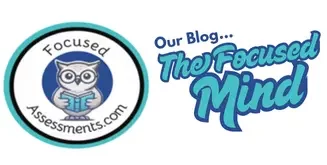Navigating Adulthood Successfully with Neurodiversity in Dallas, Texas Communities

Understanding the Challenges of Adulthood with Neurodiversity
Entering adulthood often brings excitement mixed with uncertainty. For individuals with neurodevelopmental conditions, this stage introduces particular complexities. The transition from a structured educational environment to the broader and less predictable adult world demands adjustments on many fronts.
One of the primary difficulties involves the job market. Traditional hiring processes and workplace social expectations may not always align with the unique abilities and needs of neurodiverse adults. Navigating interviews, understanding office dynamics, and adapting to evolving responsibilities can be hurdles that require targeted strategies and support.
Independent living tasks, such as budgeting, meal preparation, and household upkeep, present additional challenges, especially for individuals experiencing differences in executive functioning. Managing these everyday responsibilities requires new skills that are fundamental for autonomy.
Social relationships also change in adulthood. Forming and sustaining friendships, romantic partnerships, and professional connections often call for intentional effort and tailored approaches among neurodiverse individuals. Recognizing these challenges is the first step toward developing practical solutions for a successful adult life.
Building a Strong Support System for Neurodiverse Adults
Support networks play a crucial role in helping neurodiverse adults navigate the complexities of independent living. These networks can encompass family, friends, mentors, and professionals who bring understanding and encouragement.
Identifying allies across different areas—such as empathetic coworkers, encouraging friends, and knowledgeable healthcare providers—can create a foundation of support that nurtures growth. Peer groups and online communities also offer spaces for sharing advice, emotional encouragement, and fostering a sense of belonging.
Professional guidance through therapists, career counselors, or life coaches specializing in neurodiversity provides targeted assistance. This kind of support helps individuals develop coping strategies and build confidence in handling specific challenges.
Establishing and maintaining a support system is a dynamic and evolving process. As needs shift over time, augmenting and reshaping this network ensures continued relevance and effectiveness in supporting independence.

Key Strategies for Successful Transition to Independence
Moving toward adulthood requires preparation and intentional approaches. Developing skills in self-advocacy and accessing available resources lays the groundwork for independence.
Understanding one’s neurodevelopmental profile is empowering. When individuals recognize their strengths and challenges, they can communicate their needs more effectively. Crafting thoughtful conversations, whether through rehearsed dialogues or written communication, helps express these needs in various environments.
Requesting accommodations is a valuable step. Whether at work or in educational settings, specific adjustments can facilitate success. Advocating for oneself reflects self-awareness and problem-solving capabilities rather than weakness.
Celebrating unique strengths associated with neurodiverse perspectives fosters a positive self-image and demonstrates the valuable contributions one can make in all spheres of life.
Proactive Self-Advocacy for Neurodiverse Individuals
Self-advocacy involves comprehending personal rights, abilities, and needs, then communicating these clearly and confidently. This skill is crucial in academic, occupational, and social contexts.
Beginning with self-education about one’s neurodevelopmental condition lays a foundation. Awareness leads to better understanding by others when engaging in dialogue or requesting support.
Effective communication practice may include using visual aids or alternative formats when verbal exchanges are challenging. Preparing scripts for challenging conversations helps maintain clarity and confidence.
Requesting reasonable accommodations often leads to improved performance and increased satisfaction. Examples include modified work tasks, flexible scheduling, or the use of assistive technology. Emphasizing strengths during discussions encourages recognition of the individual’s unique value.
Overall, proactive self-advocacy plays a significant role in promoting personal growth and facilitating successful integration into adult roles.
Utilizing Resources to Support Independence
A variety of resources assist neurodiverse adults on their path to autonomy. Local community centers often offer programs designed to develop life skills, foster social engagement, and provide employment support.
Disability services offices can guide individuals to relevant workshops or group activities designed to nurture independence. Online platforms offer educational materials, guides, and community connections that enhance knowledge and confidence.
Financial planning services and disability-specific savings accounts help manage resources and prepare for long-term stability. These tools are particularly beneficial in fostering economic independence.
Assistive technologies also have a vital role. Applications for organization, reminders, time management, and communication devices can significantly ease daily tasks and improve the quality of life.
Accessing these supports is a proactive approach to maximizing personal potential and maintaining independence.

Essential Tools for Neurodevelopmental Success
Equipping oneself with practical tools supports growth in education and career pursuits. Specialized assessments that evaluate career aptitude and college major suitability provide valuable insights.
These evaluations identify areas of strength, preferred environments, and motivators, aligning academic and professional choices with individual profiles. For example, some neurodiverse individuals may find particular roles or fields align better with their cognitive styles and interests.
Career assessments consider personality traits and values to suggest compatible job sectors where neurodivergent thinking can be a valuable asset. Similarly, college major assessments help students and their families make informed decisions about coursework and degree paths, striking a balance between inspiration and manageability.
A professional interpretation of these assessments ensures meaningful recommendations, facilitating confident decision-making for future steps.
College Major and Career Assessments for Neurodiverse Adults
Assessments designed specifically for neurodiverse adults go beyond generic tests. They integrate cognitive strengths, interests, and real-world data to create personalized guidance.
These evaluations highlight fields where unique perspectives and skills are valued, encouraging choices that reflect both passion and practicality. For example, individuals with attention differences might excel in environments that embrace multitasking and rapid shifts, whereas others might thrive in creative or spatial reasoning roles.
These tools serve as starting points for discussions with mentors and counselors. They facilitate exploration of options rather than prescribing fixed paths.
This informed approach fosters sustainable academic and career success, grounded in self-awareness.

Claim Your FREE Download, Today!
Local Support Resources in Flower Mound and Highland Village
Communities such as Flower Mound and Highland Village offer a range of local resources to support neurodiverse adults.
Libraries often host workshops and support groups focused on essential life skills, job search strategies, and social engagement. These gatherings provide opportunities to connect with peers and gain practical knowledge.
Specialized clinics and therapists provide personalized support tailored to the unique challenges of neurodiverse individuals.
Community colleges offer programs tailored to support neurodiverse students, including academic accommodations, career counseling, and pathways to four-year institutions.
Certain local businesses have adopted neurodiversity by implementing inclusive hiring initiatives, thereby contributing to employment opportunities that recognize and value diverse talents.
Reaching out to these resources enhances the support network and facilitates smoother transitions into independent and fulfilling adult lives.

Mona White is an educator and diagnostician in Denton with over 30 years of experience in Learning Disabilities Testing. As a mother of two neurodiverse sons—one with ADHD and one with Dyslexia—she brings both personal insight and professional expertise to every evaluation. Having navigated public, private, and homeschool education, Mona understands the unique challenges families face. Her approach is compassionate, thorough, and tailored to support lasting success for children and adults alike.

